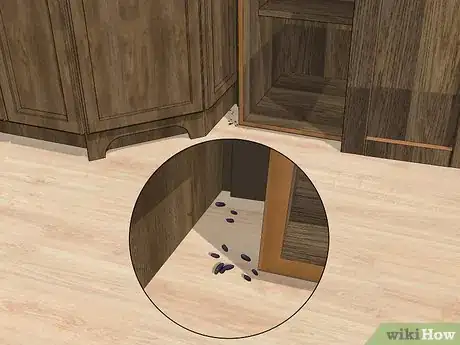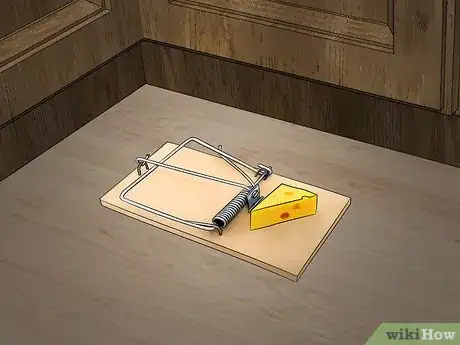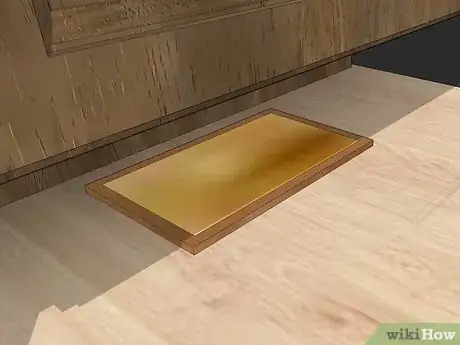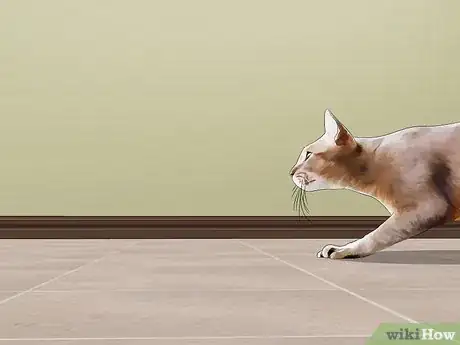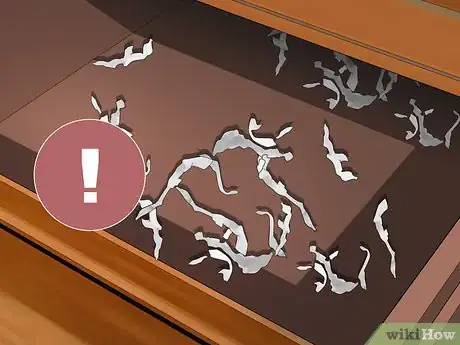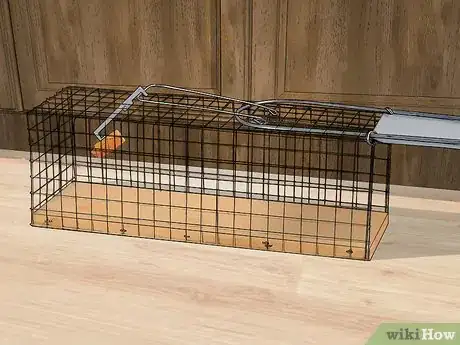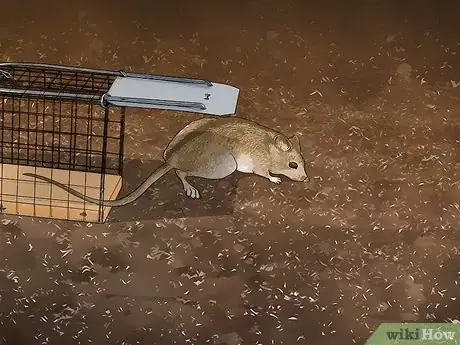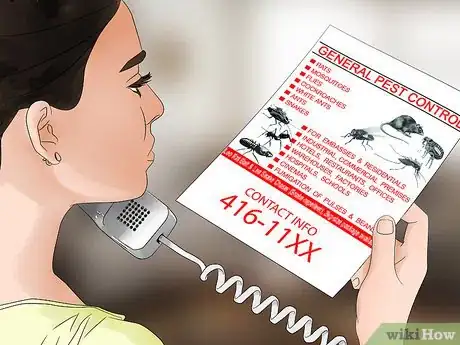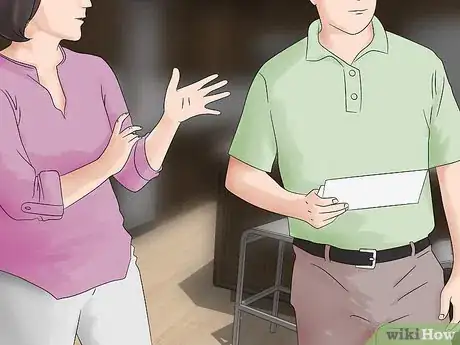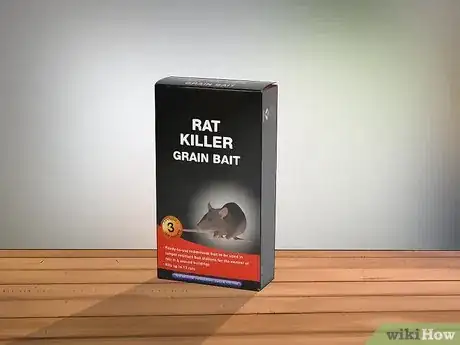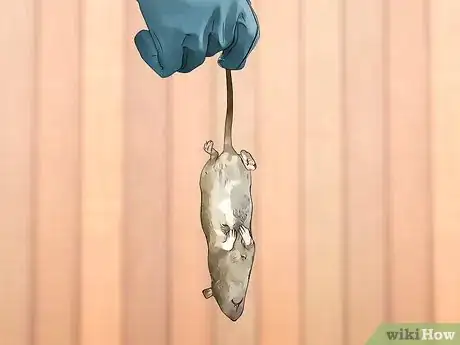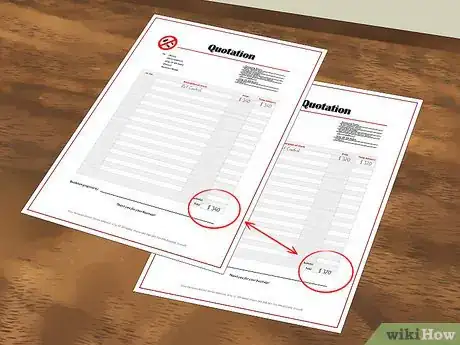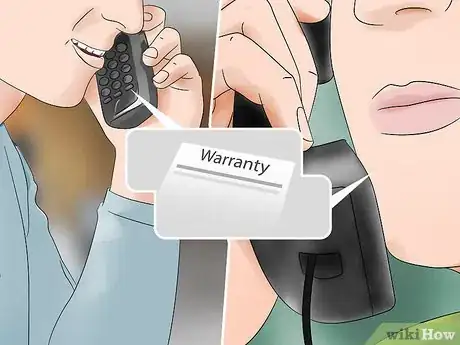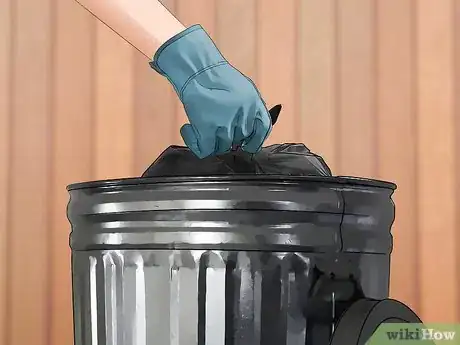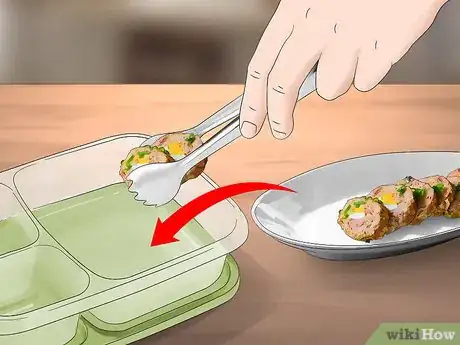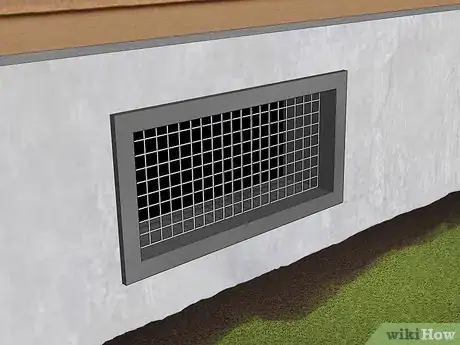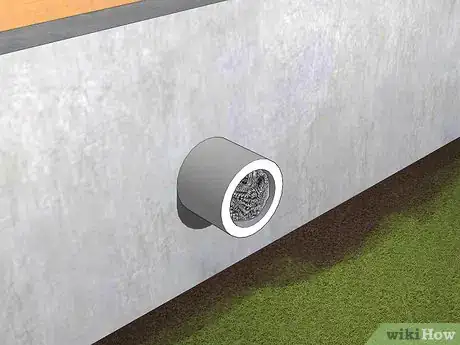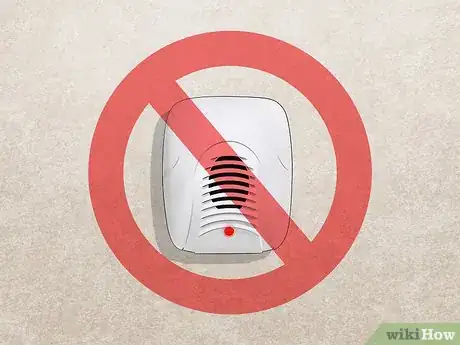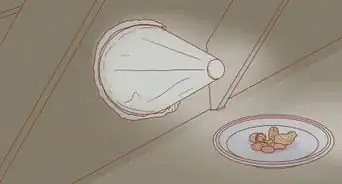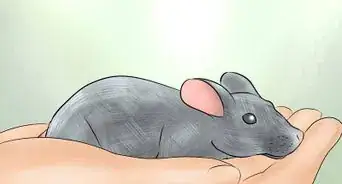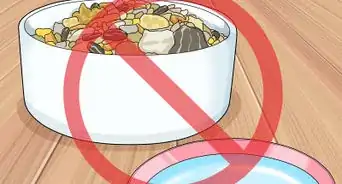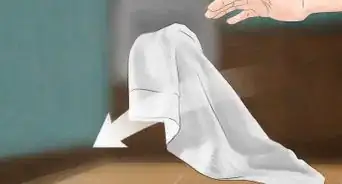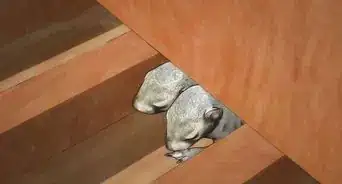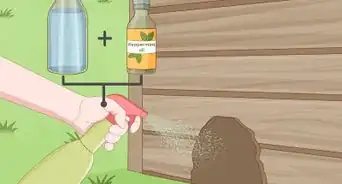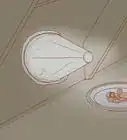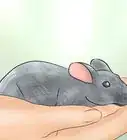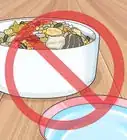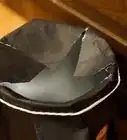This article was co-authored by Kevin Carrillo. Kevin Carrillo is a Pest Control Specialist and the Senior Project Manager for MMPC, a pest control service and certified Minority-owned Business Enterprise (MBE) based in the New York City area. MMPC is certified by the industry’s leading codes and practices, including the National Pest Management Association (NPMA), QualityPro, GreenPro, and The New York Pest Management Association (NYPMA). MMPC's work has been featured in CNN, NPR, and ABC News.
wikiHow marks an article as reader-approved once it receives enough positive feedback. This article received 12 testimonials and 82% of readers who voted found it helpful, earning it our reader-approved status.
This article has been viewed 994,032 times.
Rats are small, warm-blooded rodents that can be found almost everywhere in the world. Their large front teeth enable them to chew through almost anything, and they can be dangerous when they take up residence in your home because they carry diseases and parasites. Most rats will set up housekeeping in attics, basements, porches, under concrete and behind walls and they reproduce quickly. Get rid of rats by calling a professional exterminator or doing it with traps and prevention methods by yourself.
Steps
Removing Rats Lethally
-
1Identify the rats' feeding and nesting places. You will know where they have been by rat droppings you notice or by the holes chewed in walls, food boxes, insulation and other places in your home. This is where you’ll want to leave the traps.
-
2Leave rat poison or traditional snapping rattraps in rat-infested areas. You can purchase these from hardware stores and other retailers if you decide you want to kill the rats. Be aware that rat poison does not kill a rat instantly, it can take up to a week to kill the rat. The rat will be in immense pain during this week, so keep that in mind.
- Read the instructions and cautions carefully. Most rat poisons include warfarin, which causes internal bleeding and other drugs that kill rats, but can also be harmful to pets and people.
- Check the traps regularly. A rat corpse will give off an unpleasant odor if you do not remove it immediately. Traditional snapping traps are much more humane than rat poison, as it should kill the rat immediately. However, in some cases it can only severely injure the rat, in which case you should put it out of its misery.
Advertisement -
3Use glue boards to get rid of rats. These are flat, sticky pieces of wood that trap rats until you can remove them. Once again, make sure that you only set glue boards if you intend to kill the rats. These rats are not going to survive, as there’s no way to get them off the glue board. Some rats will chew off their feet or legs in order to escape from the trap and others will get their head trapped in the glue and suffocate. It is not the most humane way to get rid of rats but it will work. If you find a rat in a glue trap that has not been killed, you'll have to stomp on it with a boot to kill it. It's either that or hitting it on the head with something hard like bat. Do whatever you can stomach and then toss the rat in an outdoor trash can.
-
4Get a cat. They are great hunters and natural rat predators. You will still be killing the rats indirectly but it won’t cause them great pain. This is just a way of initiating the natural cycle. A good cat will clean up your rat infestation in just a few weeks. Just remember a cat will not be able to catch a rat that is in the attic or behind a wall. [1]
Removing Rats Humanely
-
1Identify the rat's feeding and nesting areas. Remember to identify these areas by paying attention to where you notice rat droppings or areas that have been chewed. If the rats were in the area before, they probably will be in the area again. If they are living in your attic try to find the entrances they are using and set the traps there.
-
2Use a nonlethal wire cage to trap and release rats if you want to avoid killing them. Experts consider this the most humane way to get rid of rats. [2] Set a cage with a little bit of food inside of it. The spring release door will trap the rat as soon as it is inside the cage. You will then have to pick up the cage and release the rat somewhere.
-
3Release the rats far away from your home. Bring them out into the woods somewhere a good distance from your house. You don’t want to worry about them finding their way back to your home and returning. They’ll find a new home somewhere, hopefully not where a person is already living.
Getting Rid of Rats Professionally
-
1Contact a local exterminator for an estimate. You can find a reputable company online, in your local phone book or by asking friends and neighbors for referrals.
-
2Describe your rat problem to the professional exterminator. He will propose a removal method that might include poisoning the rats or setting traps for them. [3] Make sure you explain the extent of your rat problem so that you get an accurate quote.
-
3Think carefully about any poisons or chemicals your exterminator might want to use. Some of them can be harmful to pets and people living in your home, particularly small children. If a child or a pet comes across rat poison and it it they will be seriously ill and may die.
-
4Ask your exterminator to remove any rats that die in your home from poisons. They can cause terrible odors in your home if they are left in walls or attics. Most exterminators will do this for no extra charge but if you are uncomfortable with seeing the dead bodies of rats then it is best to ask and make sure. Hopefully the exterminator will handle the whole process from start to finish.
-
5Compare the price quotes and methods of 2 or 3 extermination companies. Choose the one you are comfortable with. Price quotes can vary wildly between companies so try to find a good deal and an exterminator that you feel comfortable with. This will make the process much easier.
-
6Ask about guarantees and warranties. You do not want to have to call an exterminator again in a month or two if the rats return, or if turns out not all of the rats were removed from your property. Try to choose a company that offers a satisfaction guarantee so that you can get your money back if the rats are not fully taken care of. At the very least, the exterminator should come back and finish the job for no extra charge.
Preventing Rat Infestations
-
1Keep all trash sealed and take it out anytime you throw food away. Avoid giving rats a reason to hang around your house. Make sure that you use a garbage can, don’t just leave your trash hanging out in a garbage bag. When you throw the garbage bag out put it in a dumpster or a closed garbage bin for disposal. If it is just hanging out around your house it’s easy access for rats.
-
2Seal up all the food in your house and keep everything in closed containers. If the food is left hanging out in the open it could attract rats or other pests. Try to keep your house generally clean and definitely pay close attention to where you leave your food. If you live in an area that is prone to rat problems like a city then be extra careful.
-
3Remove any ability for rats to enter your home by sealing all holes in your walls, doors and screens. Check your garage doors, chimneys, dryer and air conditioning vents, and crawl spaces to ensure that they are properly sealed to the outdoors. If a rat can find its way in your house then they can set up shop and start breeding. The best thing you can do is prevent that.
-
4Stuff the area surrounding any pipes or small holes that lead into your house using bronze or steel wool. This will stop the rats from entering in through easy access holes. You can also close off the entrance completely if the pipe or entrance serves no purpose.
-
5Do not bother using products that are marketed as "rat repellents." These are often not useful and the Federal Trade Commission (FTC) has issued warnings against fraudulent sound machines that claim to repel rats and rodents.
Expert Q&A
-
QuestionWhat is the fastest way to get rid of rats?
 Kevin CarrilloKevin Carrillo is a Pest Control Specialist and the Senior Project Manager for MMPC, a pest control service and certified Minority-owned Business Enterprise (MBE) based in the New York City area. MMPC is certified by the industry’s leading codes and practices, including the National Pest Management Association (NPMA), QualityPro, GreenPro, and The New York Pest Management Association (NYPMA). MMPC's work has been featured in CNN, NPR, and ABC News.
Kevin CarrilloKevin Carrillo is a Pest Control Specialist and the Senior Project Manager for MMPC, a pest control service and certified Minority-owned Business Enterprise (MBE) based in the New York City area. MMPC is certified by the industry’s leading codes and practices, including the National Pest Management Association (NPMA), QualityPro, GreenPro, and The New York Pest Management Association (NYPMA). MMPC's work has been featured in CNN, NPR, and ABC News.
Pest Control Specialist Try using snap traps! Snap traps are usually faster and more effective than rat poison.
Try using snap traps! Snap traps are usually faster and more effective than rat poison.
References
About This Article
To get rid of rats, store all of your food in sealable containers so the rats can't get to it. Also, cover any holes or openings that the rats may be using to get inside with wood or steel wool. Avoid leaving food scraps or your trash sitting out or it could attract more rats. If the rats keep coming, try setting up wire cage traps with food inside of them around your home. When a rat gets trapped in one, release it somewhere far away so it doesn't come back. If you want to learn how to use lethal traps to catch and kill rats, keep reading the article!
